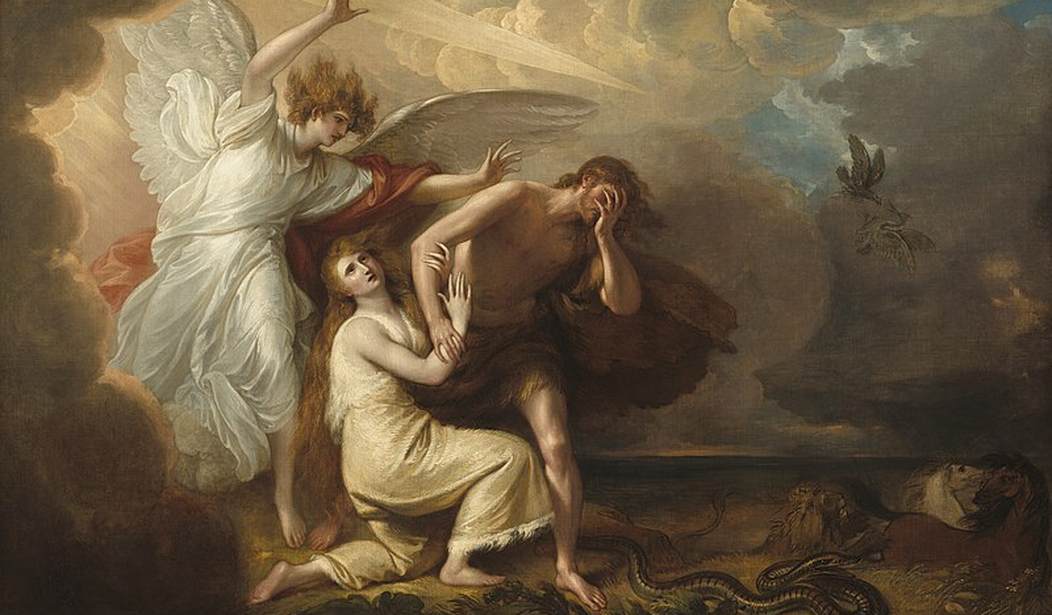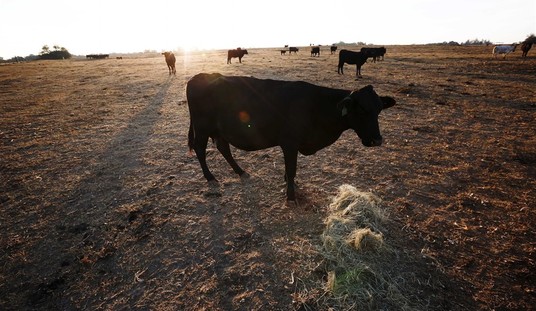This morning’s Gospel reading is John 3:16–18:
God so loved the world that he gave his only Son, so that everyone who believes in him might not perish but might have eternal life. For God did not send his Son into the world to condemn the world, but that the world might be saved through him. Whoever believes in him will not be condemned, but whoever does not believe has already been condemned, because he has not believed in the name of the only Son of God.
Today we have perhaps the most well-known Gospel verse as our Mass reading — a status not entirely attributable to its core of the faith, although it certainly is. Sports fans of a certain age or older will remember a proliferation of signs bearing “JOHN 3:16” at games, usually in end zones but also at basketball and other televised sporting events. This took place in the 1970s and 1980s, for the most part.
At that time, as a teen and young adult, I didn’t take too much notice of it except as a novelty act. At the time, I lived a strange blend as a cradle Catholic and secular lethargist (never an atheist or agnostic though), and it didn’t occur to me to look up the reference until later. Even when I did, the Gospel verse struck me as flowery nonsense.
God loves this world? Or even the world at the time of Jesus? Huh?
At that time, in my less-than-enthusiastic approach to faith, I tended toward a common Manichaeist/Gnostic heresy — that this world is evil and irredeemable, and that there’s nothing to love about it. Salvation could not possibly come through the material world, I thought, and the idea that God loved this mess of a place made it very difficult to have faith at all. And to send His only Son to die at our hands for the sake of redeeming our world … well, that was beyond comprehension to me then.
And to a certain extent, it still remains a mystery to me, as I’m sure it does to others. But after a long time and more life experience, I see glimmers of it in both the world and the Word.
Consider the Genesis narrative of the fall of humanity and Original Sin. This helps underscore the notion of a lesser world, a lesser materiality. The Garden of Eden was the world in perfection; what followed after was a material world full of dangers and death. He cast Adam and Eve out from one into the other, a punishment for disobedience and attempting to usurp His power.
Does that sound like God “loves” the world? Or are we thinking about this in the wrong way? What if God loves us so much that He allows us to make our own decisions? After all, He made us in His image, especially in Creation. The story of the Garden could also be seen as His children deciding that they wanted the opportunity to craft their own world within the boundaries of His overall Creation, and that the Lord mournfully allowed them to do so.
Consider Genesis 3:16-19 in the light not of punishment by a wrathful Lord, but of warning and caution from a wounded parent unjustly betrayed and accused of tyranny:
16 To the woman he said, “I will make your pains in childbearing very severe; with painful labor you will give birth to children. Your desire will be for your husband, and he will rule over you.”
17 To Adam he said, “Because you listened to your wife and ate fruit from the tree about which I commanded you, ‘You must not eat from it,’ “Cursed is the ground because of you; through painful toil you will eat food from it all the days of your life.
18 It will produce thorns and thistles for you, and you will eat the plants of the field.
19 By the sweat of your brow you will eat your food until you return to the ground, since from it you were taken; for dust you are and to dust you will return.”
Is this a punishment by God — or a warning about the consequences of living outside the divine Trinitarian nature?
Also, take note of what the Lord does next in Gen 3:21 before sending the two out. “The Lord God made garments of skin for Adam and his wife and clothed them.” That does not sound like a master angry with his servants, but more like a parent sending their children out into the world. Nor did God turn His back on His family once they left. Indeed, in Genesis 4, both Cain and Abel knew Him so well that Cain had conversations with the Lord, even while sinning deeply in the murder of his brother. And even in that sin, the Lord did not stop loving Cain but rather made clear that Cain would have to live with the consequences of his sins, just as his parents had to do.
So, far from the fallen world of Adam and Eve being a place of evil, it is still a place blessed by the Lord. And He loved the people He created and the people who followed from their procreation, even when they put His good creation to evil works. When they call to Him, He answers back, even through all of the sin and misery we create in God’s good Earth. The Lord so loved us that He has tirelessly called us back ever since. He sent the Commandments to guide us, and sent prophet after prophet to warn us of the destruction our choices would create. He created the Davidic kingdom to call all nations to His Law, and when that failed, He sent Christ to light the way home.
All of this has one message to the children of Adam and Eve: Repent, and return to the Trinitarian life.
In that context, John 3:16 makes sense — and perhaps more than we consider even in faith. Knowing that we had made an unbridgeable gulf between us and Him, the Lord finally sent the Word Incarnate to us as a sign that — as good as He made this world — there was something far better that we could choose. We could hear the Word, repent, and return through Jesus Christ’s atonement for all our sins, once and for all. That’s how much God loves the world and all his children within it.
And so we have returned back to where we started with the Gospel, which intends to call us all back to where we really started. Yes, this world can be a terrible place, but only because we make it so. It is and always has been a gift from our Father to allow us to express our own creative power, a choice our ancestors made long before us in disobedience and rebellion. The Lord did not stop loving His children for that, and Christ’s Gospel reminds us of that — and of His loving desire to see us return home to Him of our own free will.
The front page image is “The Expulsion of Adam and Eve from Paradise” Benjamin West, 1791. On display at the National Museum of Art. Via Wikimedia Commons.
“Sunday Reflection” is a regular feature, looking at the specific readings used in today’s Mass in Catholic parishes around the world. The reflection represents only my own point of view, intended to help prepare myself for the Lord’s day and perhaps spark a meaningful discussion. Previous Sunday Reflections from the main page can be found here.








Join the conversation as a VIP Member